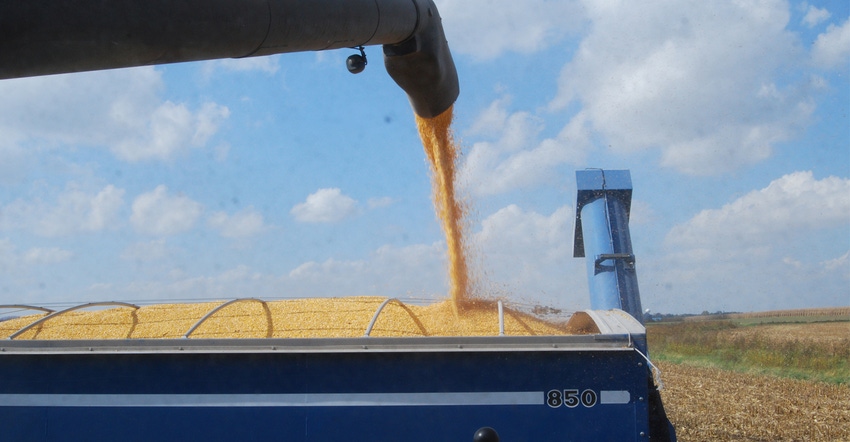
Marketing grain by using basis contracts provides more flexibility in how farmers can market their grain and profit from their crop. Iowa State University Extension grain marketing economist Chad Hart discussed the use of basis contracts at a recent grain management and marketing meeting.
“Typically, when there is a cash price for something, it is thought of as one price,” Hart said. “Basis contracts break that price down into two components: the futures price and the basis. So instead of trying to maximize just one component, farmers can try to maximize both. This gives them more flexibility and an opportunity to get a better cash return than just capturing the highest cash price.”
Knowing how to use basis contracts to lock in a sales price for grain is the focus of Iowa State University Extension and Outreach publication “Understanding Risk in Basis Contracts,” FM 1891. The publication was recently revised and updated by Hart, who is an associate professor at ISU. It’s free at the Iowa State University Extension Store online.
Helps figure out when to sell crops
“Basis can be a great signal to help farmers figure out where to sell their crops and improve profitability,” Hart said. “Basis can also help provide a signal as to who their customers are and if demand is growing or shrinking.”
Basis contracts differ from price-later contracts because the basis (the difference between the local cash price and futures price) is established when the contract is signed and because grain elevators or processors may pay a portion of the values of the grain at the time it is delivered to the buyer.
“Basis contracts give farmers an opportunity to lock in a basis when it is advantageous to them,” Hart said. “That gives them the chance to improve their bottom line.”
Risk: Locking in part of price
There are also potential pitfalls when using this type of marketing tactic. “The risk by using a basis contract is that I’ve locked in one piece of the price, but the other part could still decline,” Hart said. “Once committed to that buyer, if a better price comes along later on, I can’t move those same bushels to a different buyer for a better price.”
Even with that risk, selling grain through basis contracts should be part of a farmer’s overall marketing plan.
“You want to have a wide variety of tools — sell for cash, sell forward, hedge, basis contract on your marketing menu — and you should use those tools when it makes sense,” Hart said. “Given the volatility we see in market prices, the more choices farmers have to market their grain, the better off they are.”
About the Author(s)
You May Also Like




